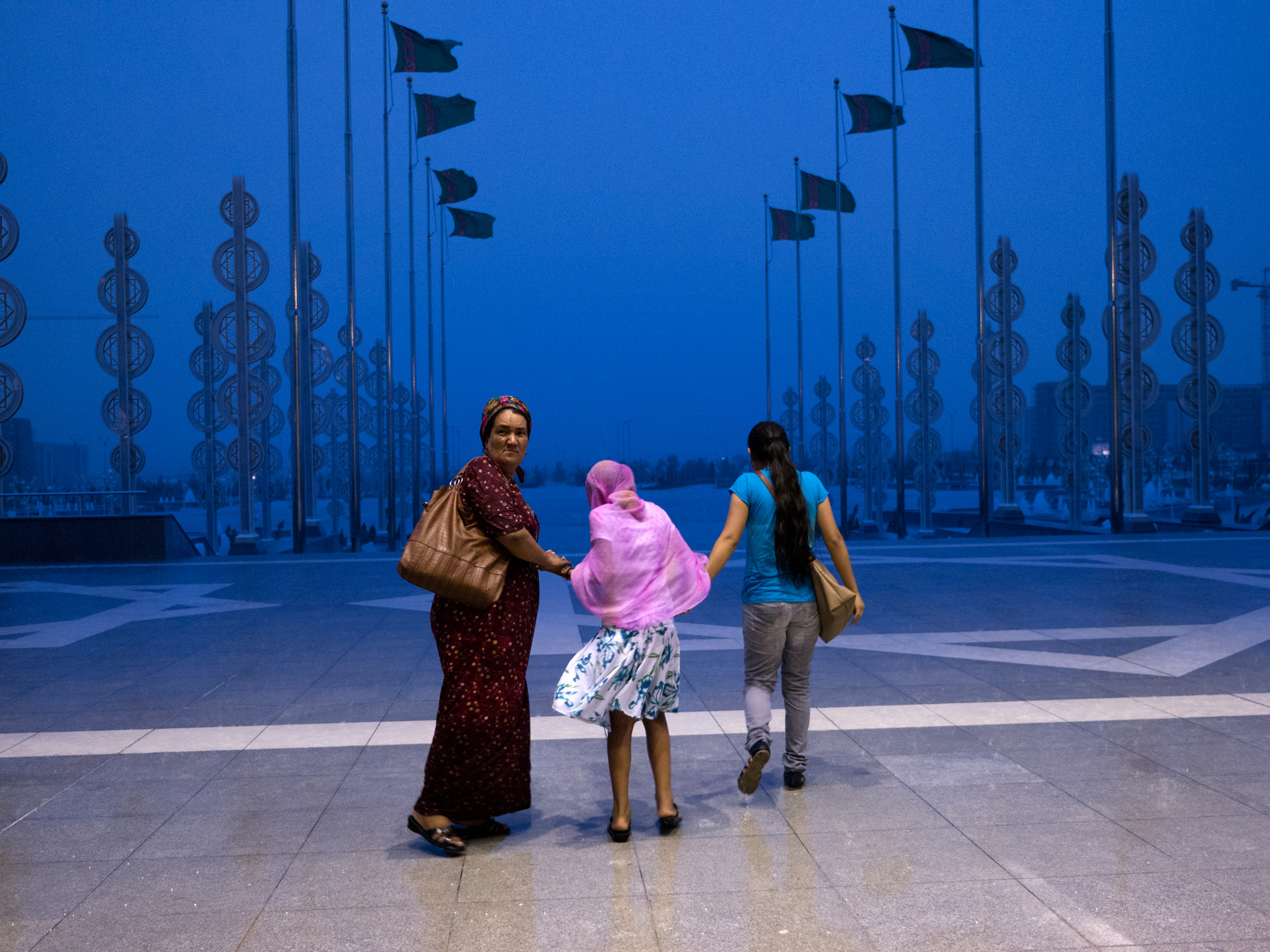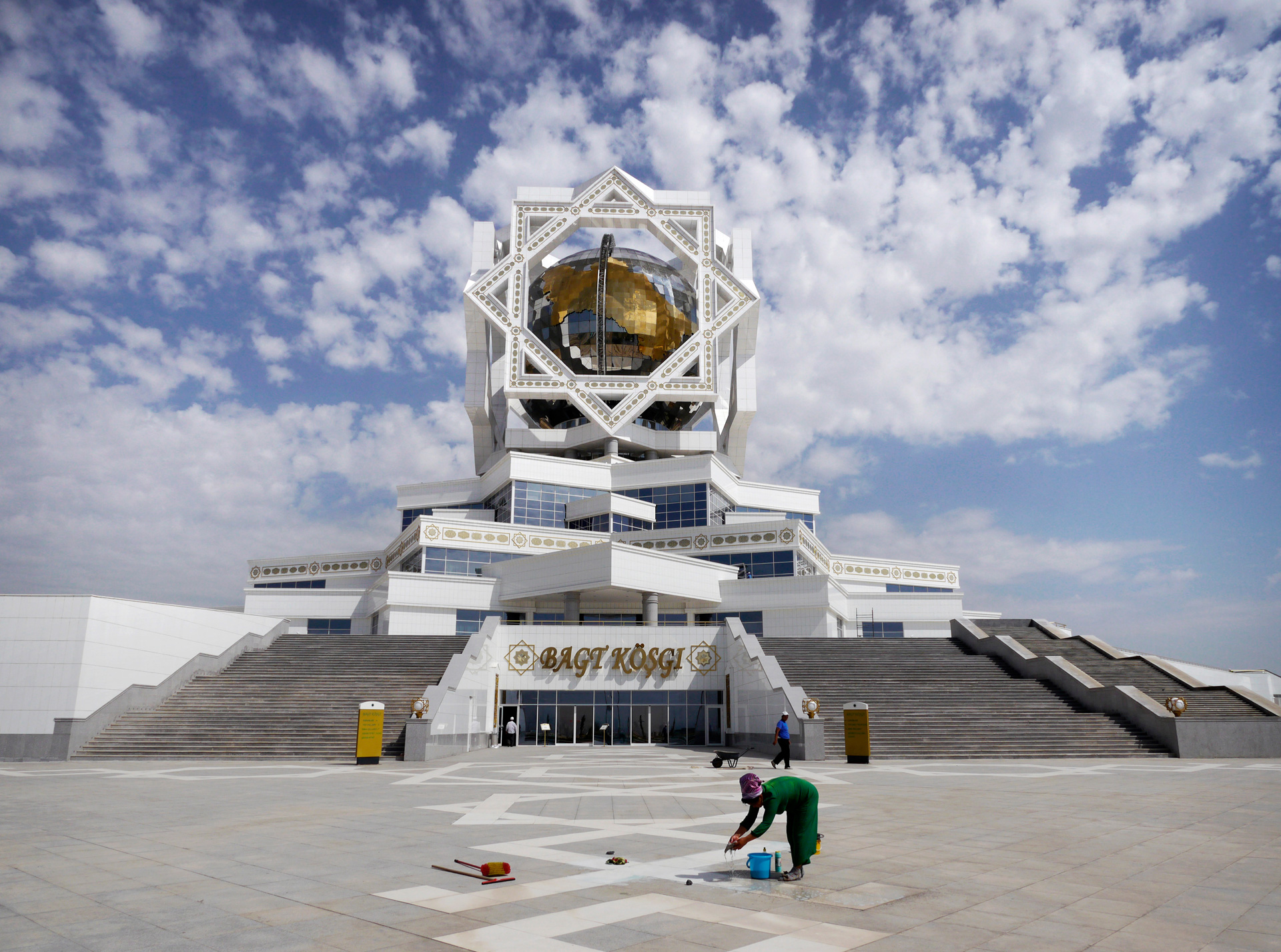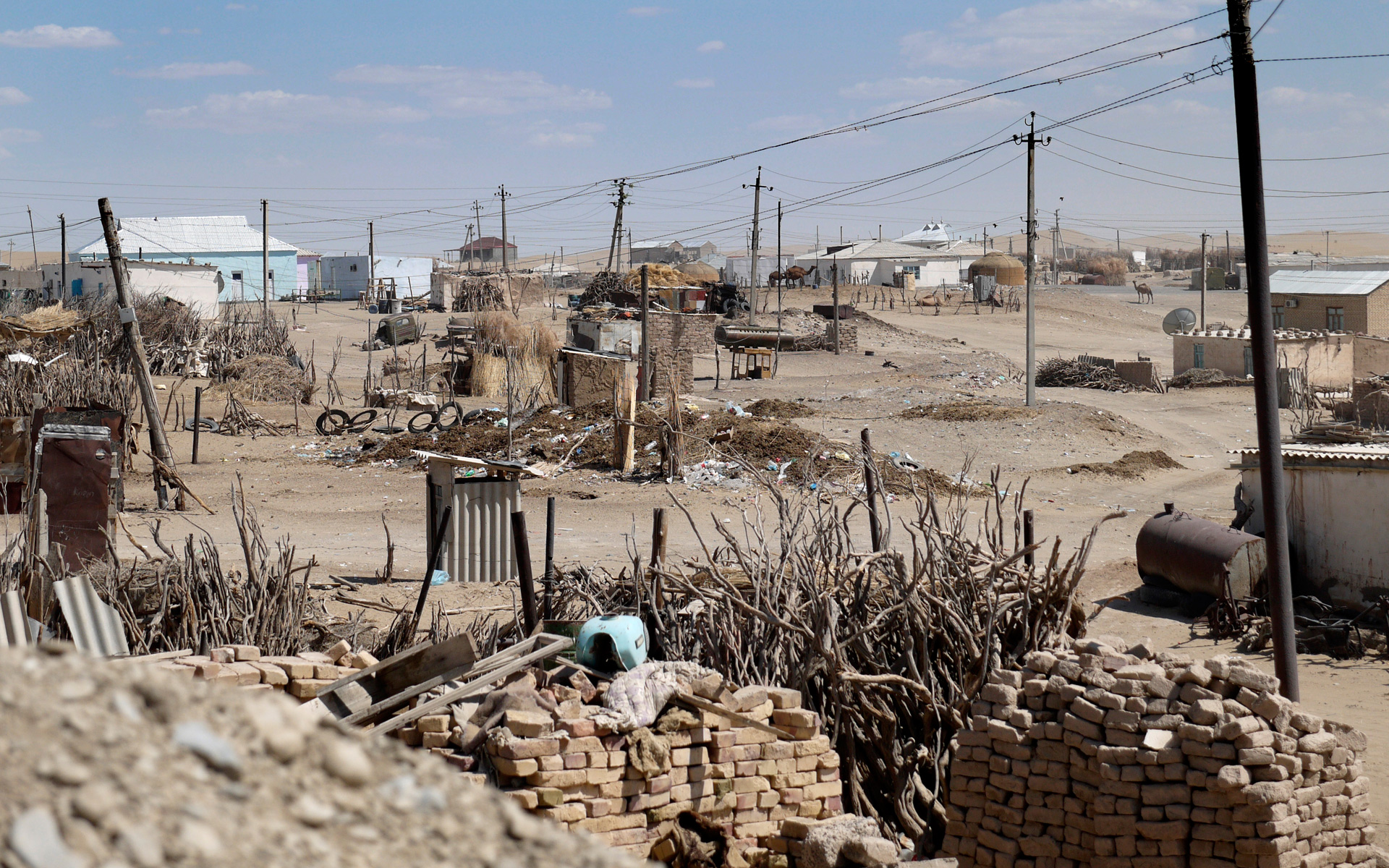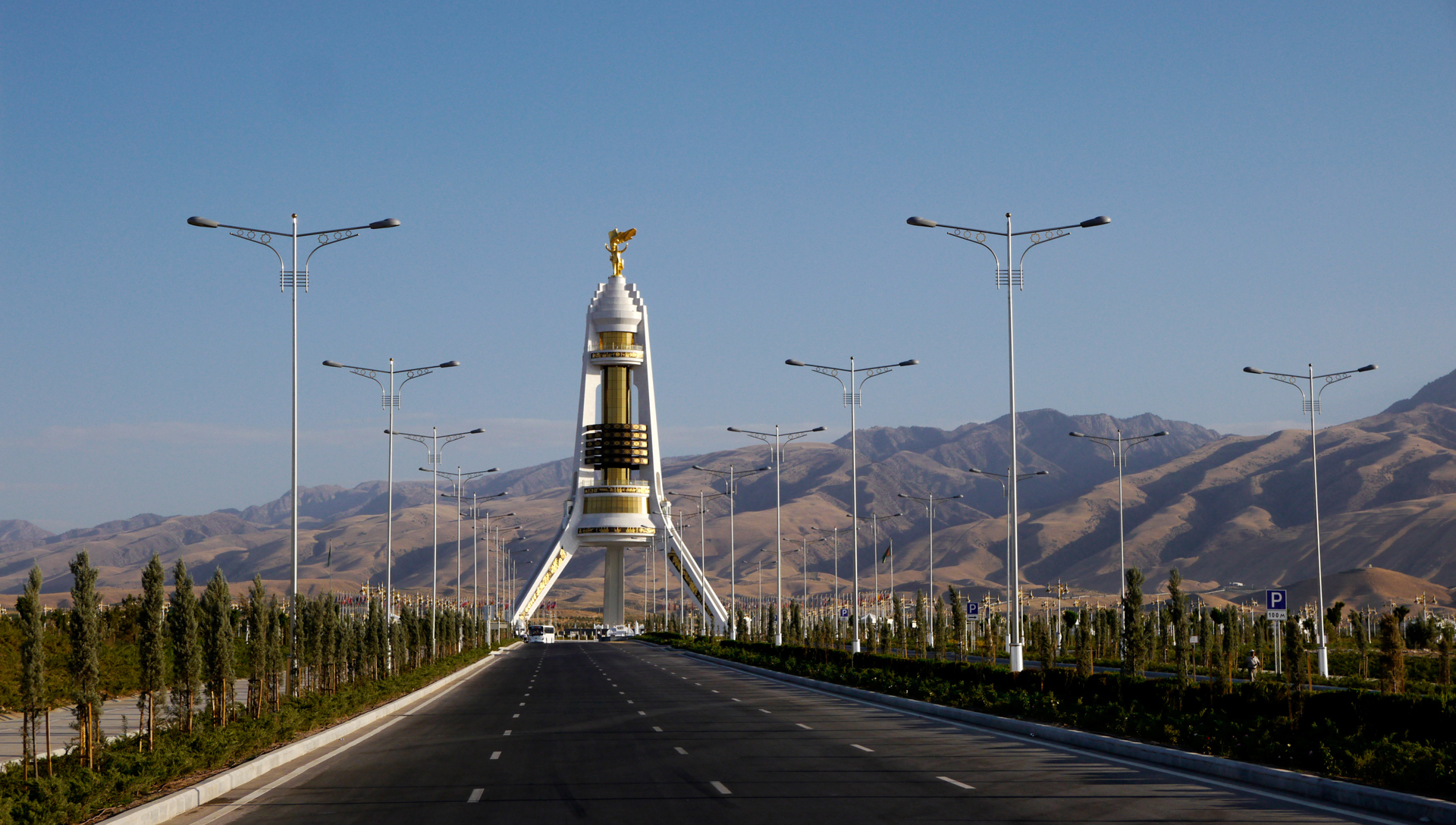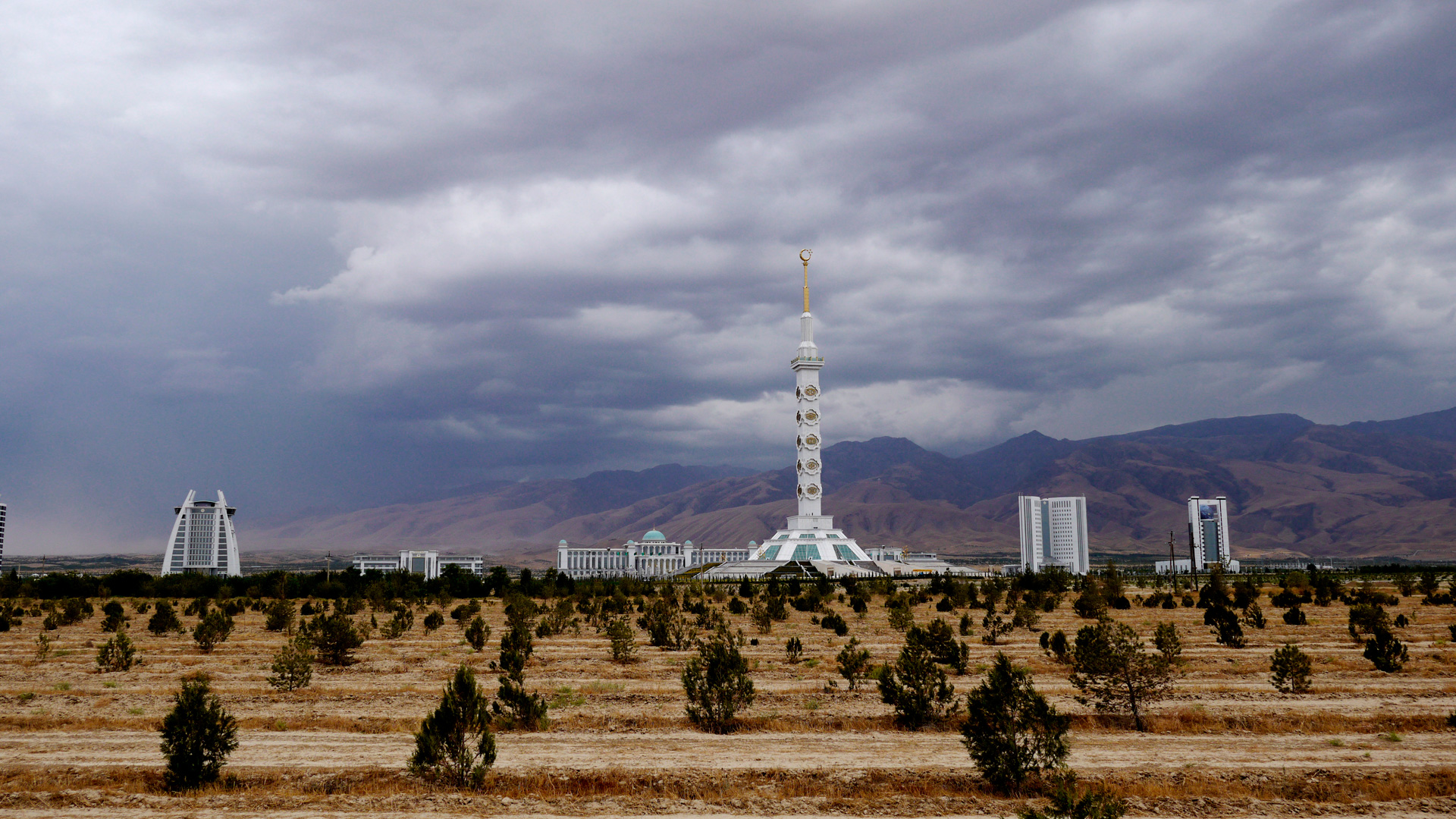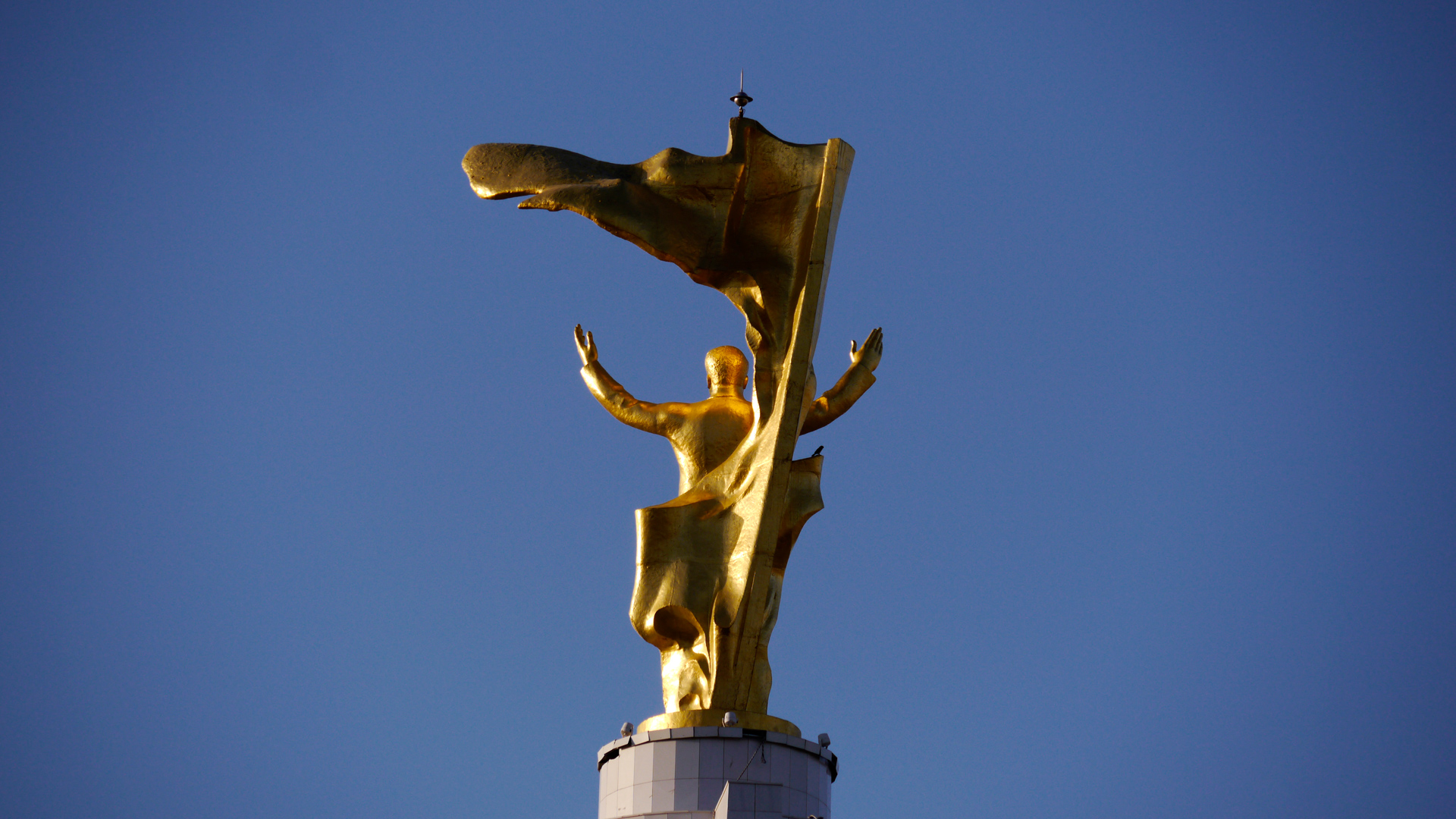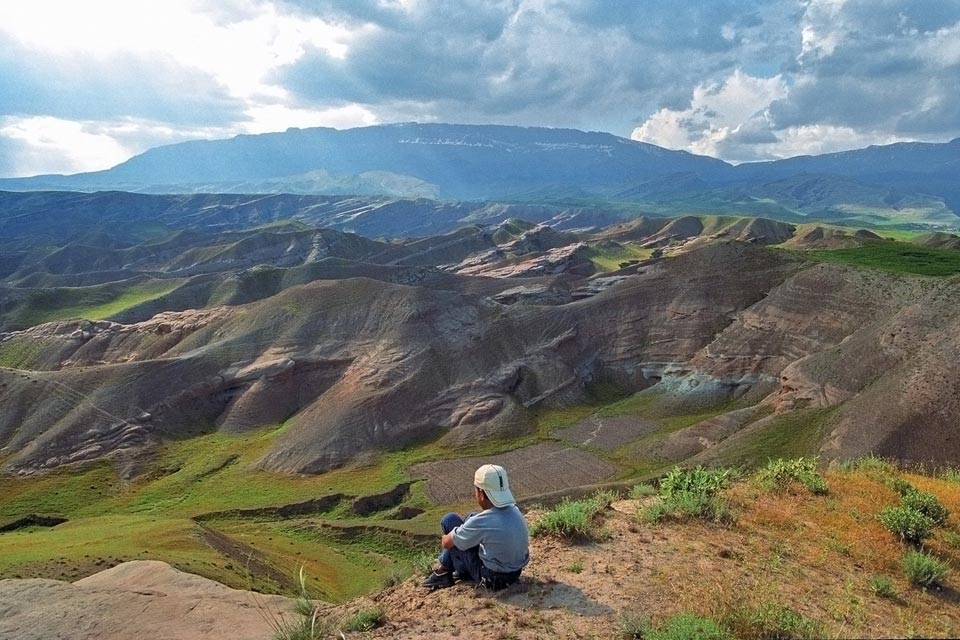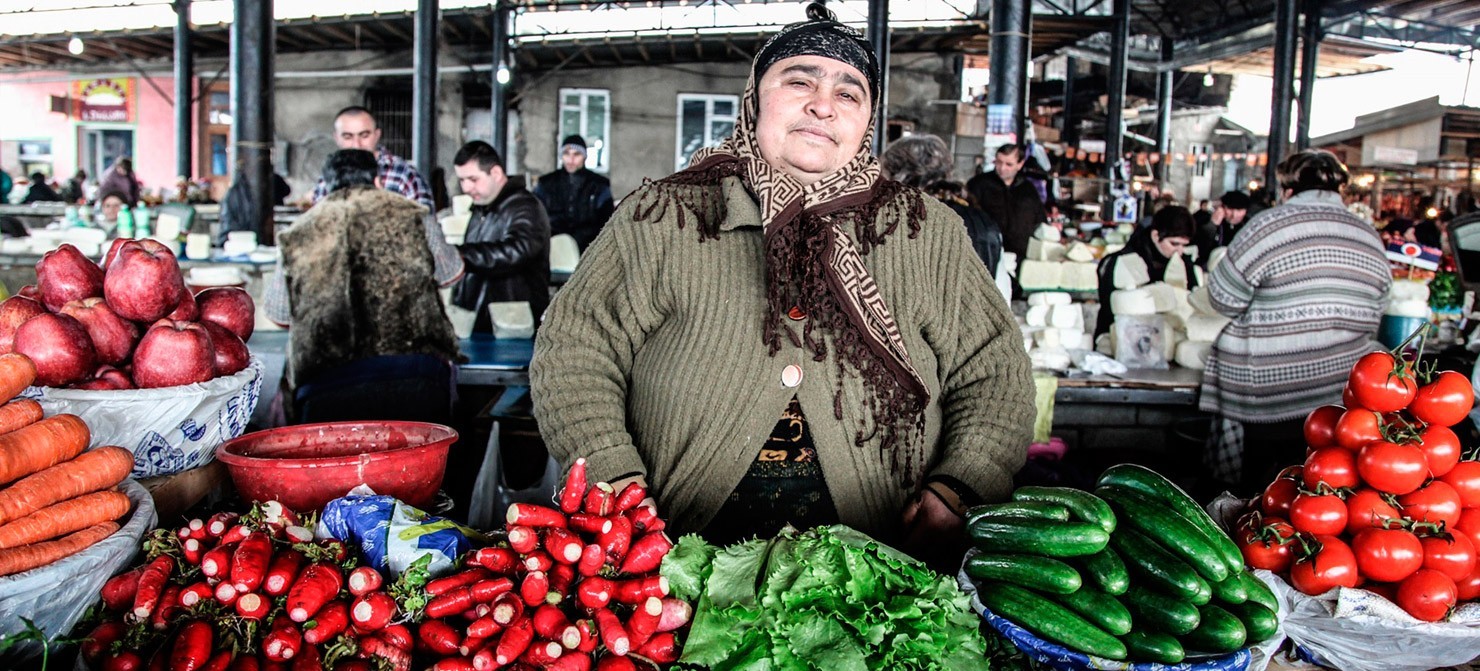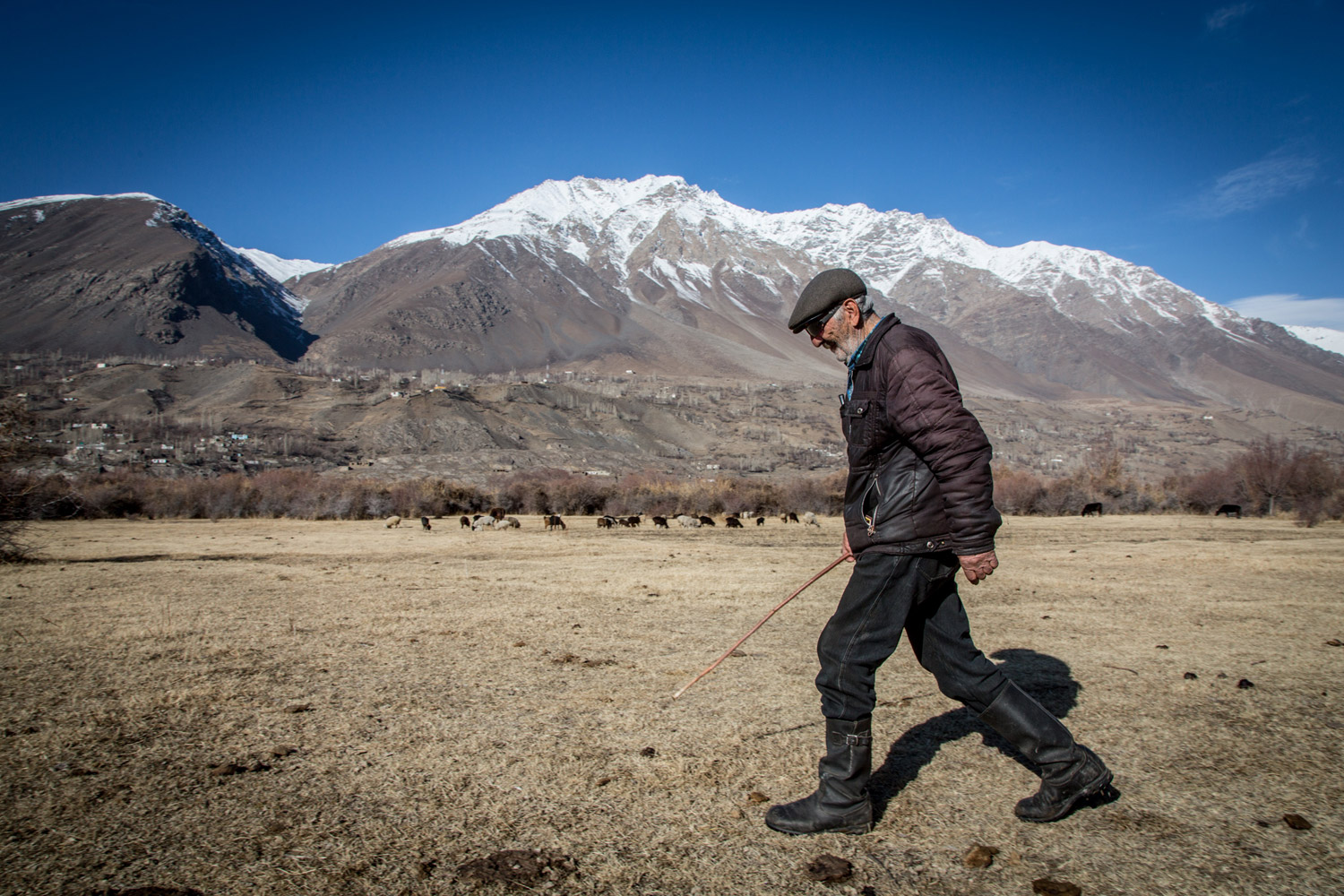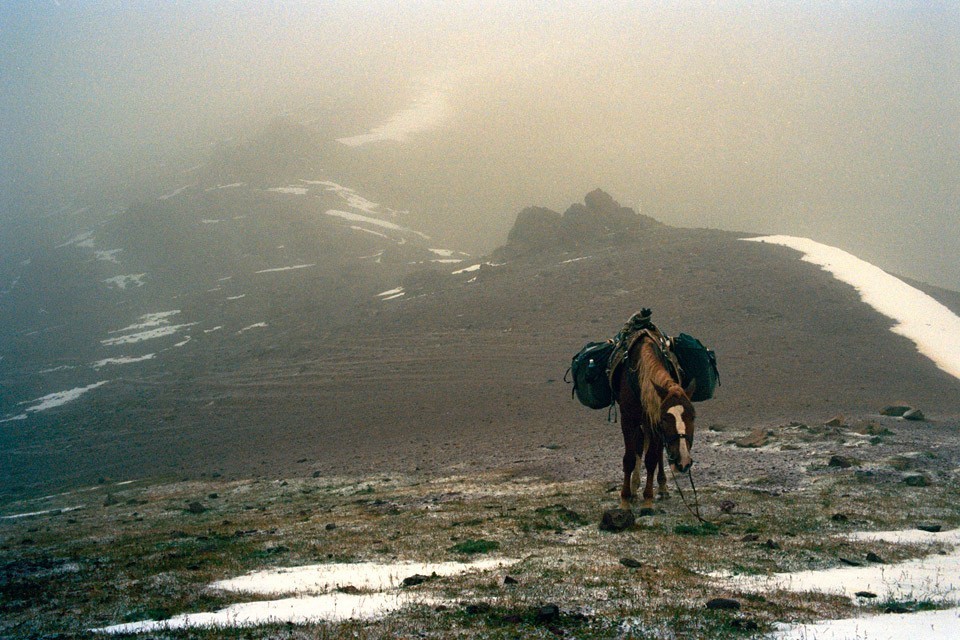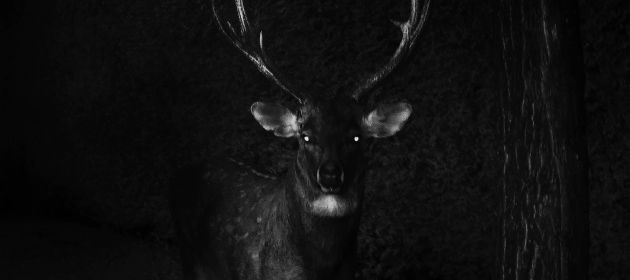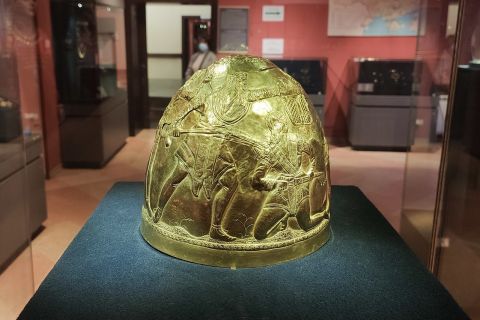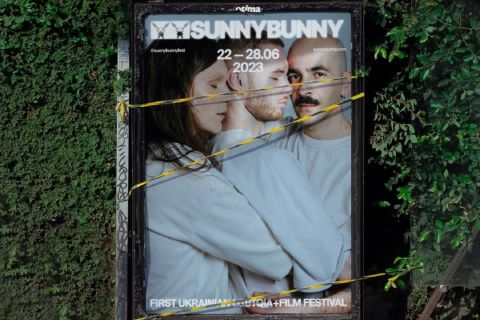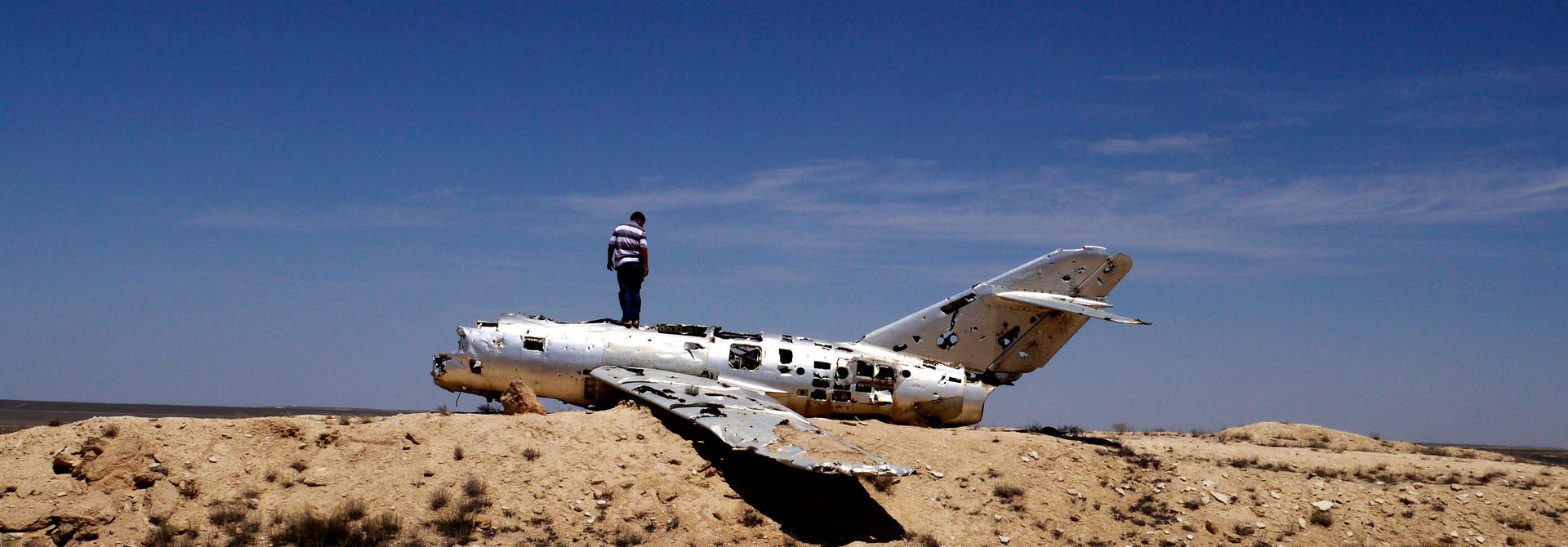
Picture Story from a Country That Does Not Allow Anyone In
If you decide to visit Turkmenistan, you will notice that except one Belarusian and several Russian airlines, only Turkmen Airlines flies to Ashgabat. The website of the carrier is not working and visually looks like a webpage from the 90s. It is only logical for the country where the monthly cost of Internet access equals the average salary, and the rejections of tourist visas is 90%.
Photographer Amos Chapple managed to get into Turkmenistan through a roundabout. He shared his impressions of the trip with Bird In Flight.

Born in New Zealand. Works as a photojournalist for Radio Liberty Europe. Visited over 70 countries as a photographer. Works for the The Guardian, Atlantic Monthly, Daily Mail, Vanity Fair, and other media outlets.
“I’d failed twice before to get a tourist visa. I decided I’d make one last try,” Amos says. “First, I arranged a visa for Kazakhstan, then I traveled into Iran and headed for Mashhad, in eastern Iran, and applied for a three-day transit visa to get from Iran, through Turkmenistan, to Kazakhstan. It worked, but it was touch-and-go. I remember another guy, I think he was British, who was refused trying the same thing at the same time.”
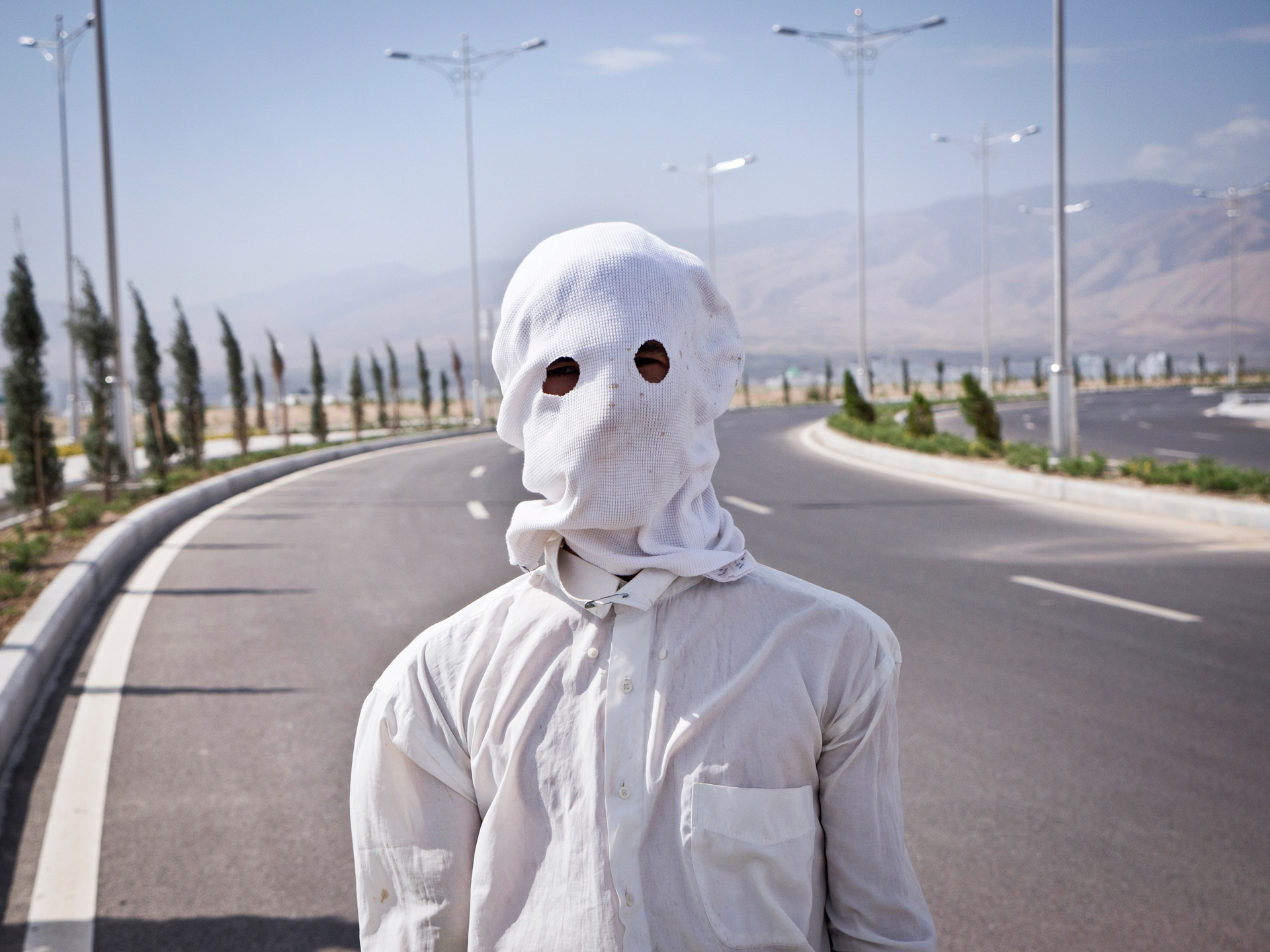
A gardener shrouded against the sun on a 40C day in Ashgabat.
The Spirit of Unfreedom
Turkmenistan started closing off from the world during the rule of Saparmurat Niyazov, the former president, who gave himself the title of Turkmenbashi (‘Head of the Turkmen’, ‘Great Eternal Leader’). In the later 1990s, Niyazov had golden statues of him put around the country (in Ashgabat alone, there were dozens of them), it became obligatory for all officials to kiss his hand when greeting him, and for all printed media and TV channels to place his portrait on the front page or in the corner of the screen.
Niyazov dismissed the Academy of Sciences of Turkmenistan, shortened university education to two years, and deemed all foreign degrees invalid. He also banned the circus, opera, video games, the Internet, smoking in personal cars, and gold teeth. To honor his mother, who died when he was still a child, Saparmurat Niyazov gave her name to one of the capital’s avenues, the month of April, and one of the kinds of Turkmen bread.
“I was traveling with a French girl, and she’d been wearing the mandatory head covering through Iran for weeks. When we got through the border with Turkmenistan, I remember first of all turning to her and telling her that she could take off her headscarf now. But that was about the only sense of ‘freedom’ we experienced. It felt as otherworldly as you can imagine — a kind of North Korea lite,” Amos Chapple says.
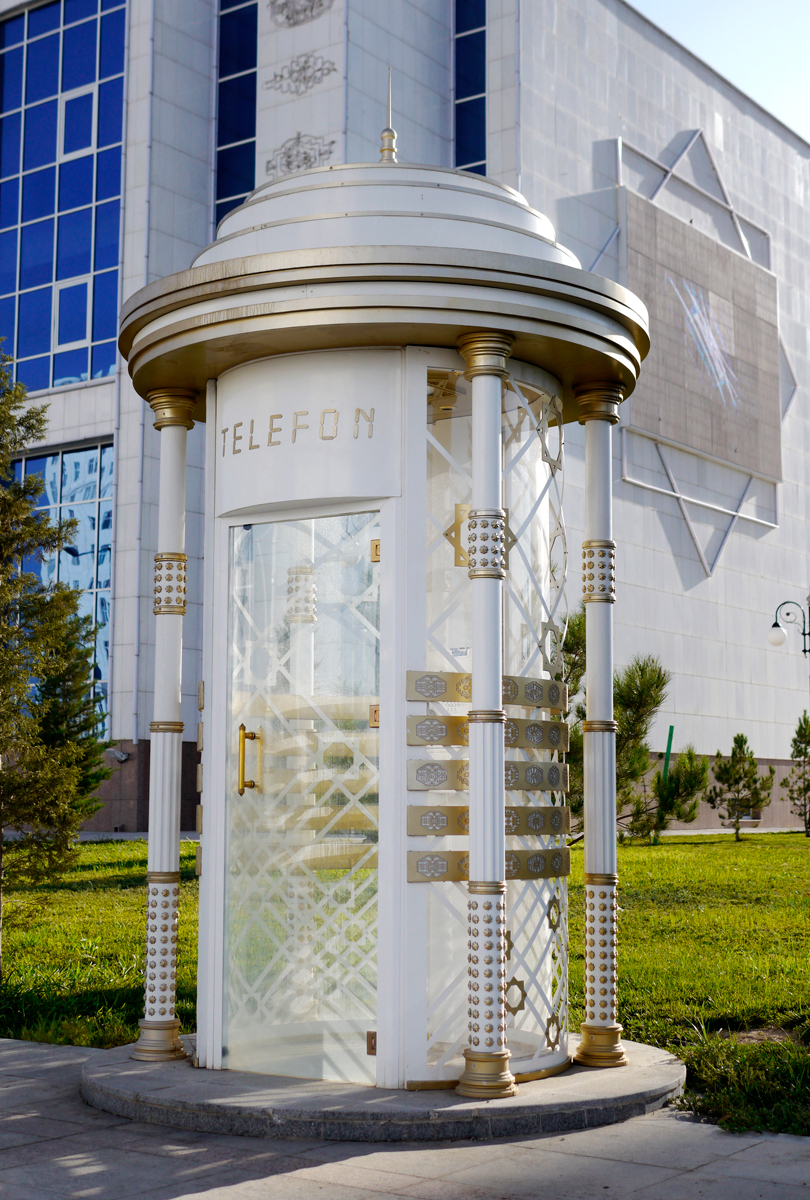
A telephone booth in Ashgabat
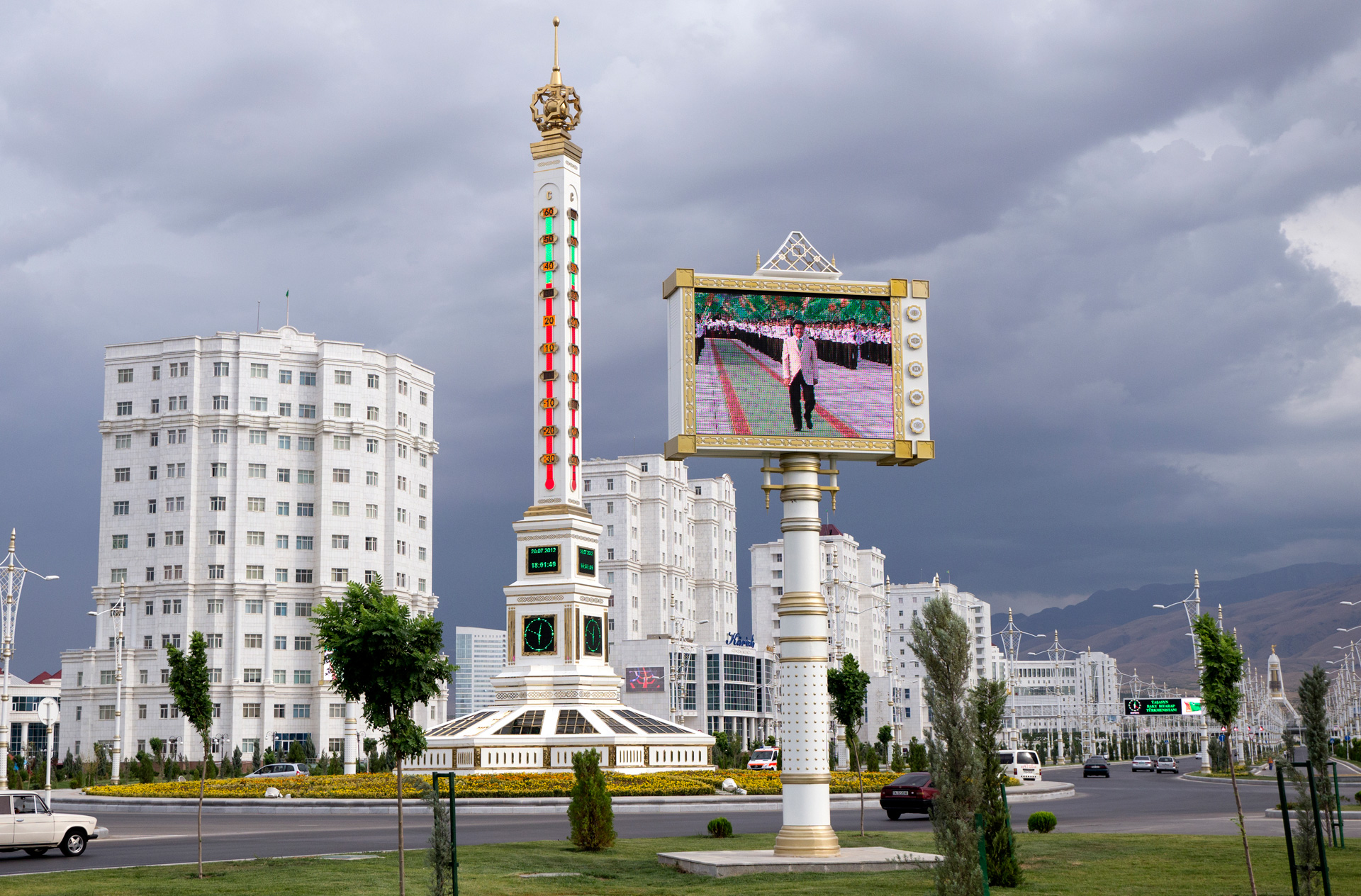
A giant thermometer, and a screen playing a loop of official ceremonies in the center of Ashgabat.
In Turkmenistan, Chapple visited the Derweze gas crater, which has been flaming in the Karakum sands for almost fifty years now.
The crater formed in 1971, during the search for a new gas field, when they were drilling the well: a drilling rig fell into the void in the ground, and a hole formed there that started emitting methane. According to the popular version, the gas was set on fire for the sake of safety of geologists and people living nearby (which is not very likely, because methane is not toxic). Since then, the fire has been burning, and the crater received the name of the nearest village — Derweze (Gates) and a nickname ‘Gates of Hell’.
“The one village I saw on the way to the flaming ‘Gates of Hell’ seemed a very desolate place,” Amos Chapple recalls. “I remember young men coming out of their doorways to stare at us and everyone moving very slowly, it felt like a hopeless place. Turkmenistan is a hot, lonely, and empty country. In the capital, the shops are all very slick and modern but very few people are making use of them, as if they were just put there to look good.”
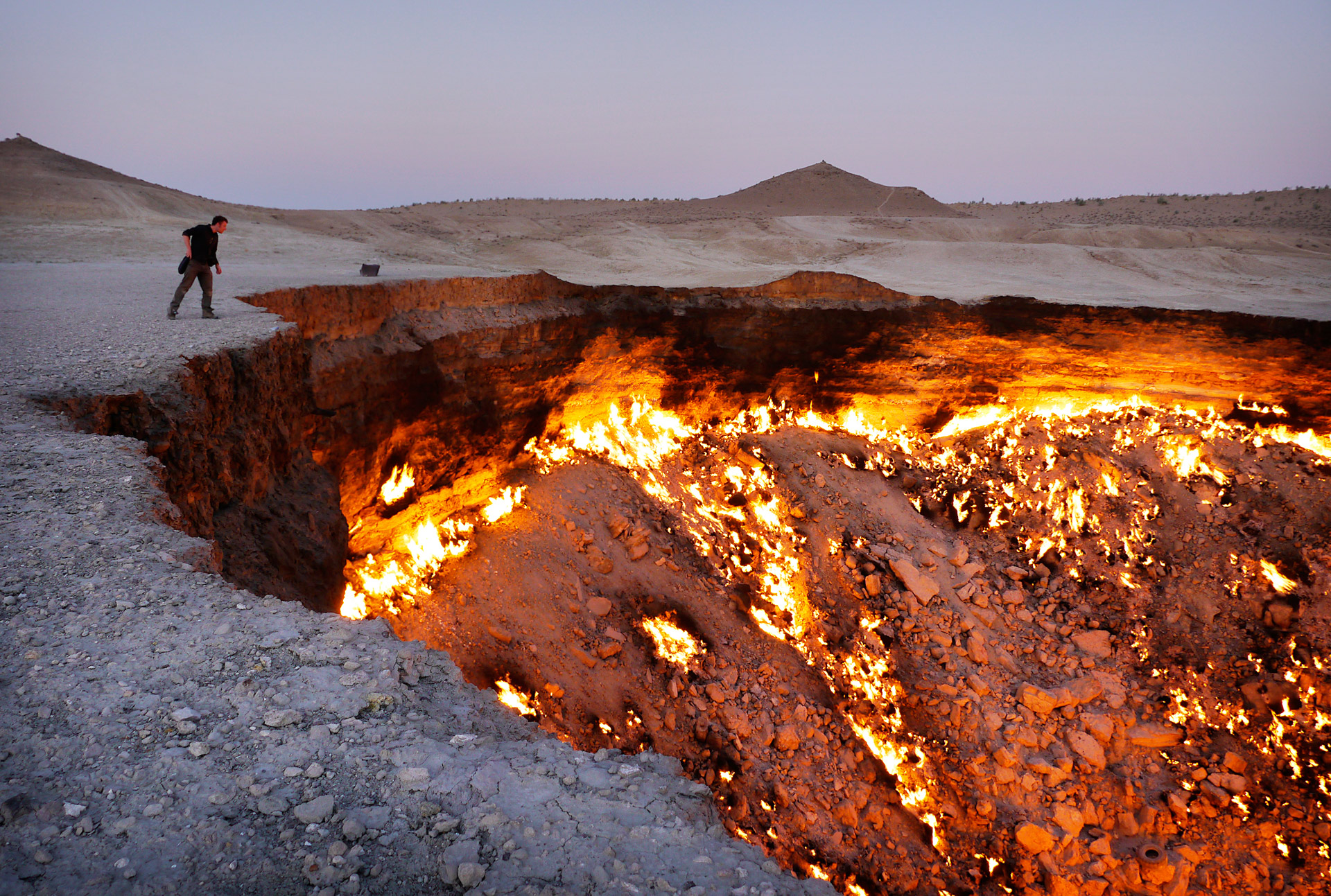
Derweze crater formed in 1971, as a result of a failed attempt to drill a gas well.
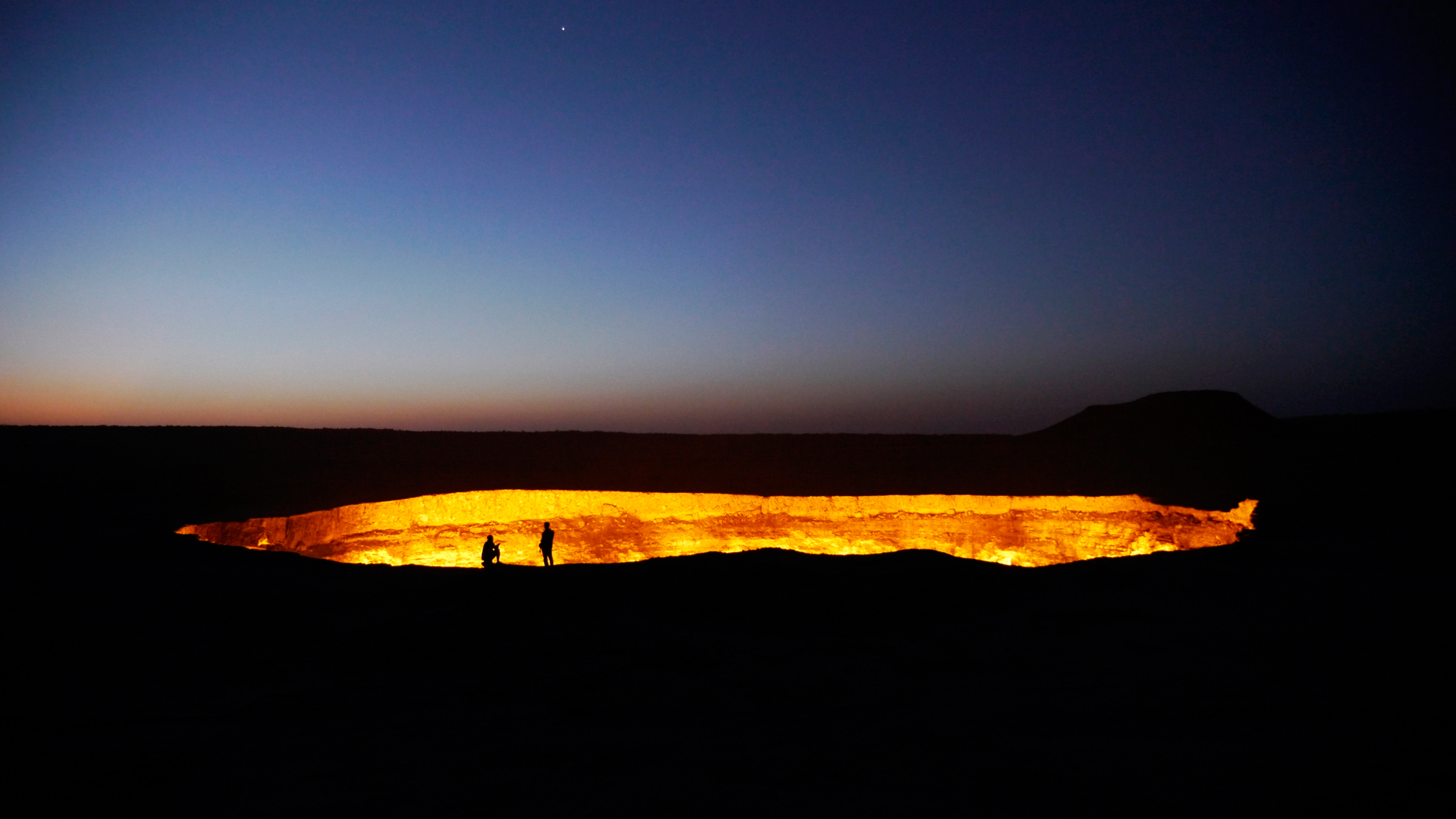
The folk name of Derweze crater is the Gates of Hell
The Management Cult
Without special permission for shooting, Amos Chapple had to use a small camera, a Lumix GX7, which is good for situations like this.
“One other traveler I spoke to said a soldier in the capital Ashgabat had seen him taking photos, ran across the road, grabbed the camera and demanded certain pictures be deleted. I didn’t have anything that intense happen, but once I was working in a government area and some young Indian or Pakistani expat office worker told me that I was not allowed to photograph there. I remember thinking “What’s it to you?” No one is scared of a tourist,” Amos says. “I remember having this strong realization when I was in Turkmenistan that freedom, democracy, all of these things that we take for granted, are really very fragile. It’s easier for a country to drift into a bad situation than a good one, and unless enough good people stand up for what they believe in, things fall apart quickly. That said, I think Central Asia is a special case — without repressive leadership, I think, Islamic extremism could cut through those countries very quickly.”
After Niyazov’s death, his post was occupied by a former dentist and Deputy Prime Minister Gurbanguly Berdimuhamedow. According to the laws at the time, the leadership was supposed to be transferred to the Chairman of the Assembly Atayew, but at the decisive moment a criminal case was filed against him and he was detained. Berdimuhamedow had the unanimous support of the delegates of the People’s Council and later won the Presidential election.
Berdimuhamedow promised to fight the cult of personality of Turkmenbashi. Portraits of Niyazov disappeared, the months and avenues regained their originals names, and the golden monuments to the great eternal leader were moved to the suburbs of Ashgabat. Now when people apply for a job, they don’t have to take an exam on knowledge of Niyazov’s book, Ruhnama. The books written by the new president came instead. Portraits of Berdimuhamedow became obligatory for every interior (even inside the cars), and he adopted the title Arkadag, meaning ‘the Great Protector’. In 2015, the first golden monument to Berdimuhamedow was erected in downtown Ashgabat, and the import of black cars was unofficially suspended — Gurbanguly doesn’t like dark colors.
“The cult of personality didn’t feel very oppressive, just a little silly,” Chapple recalls. “On a public bus I remember a ‘news’ broadcast announcing that the government was meeting with some Greek shipbuilders — it was detailing the day ‘at 10:20am the government were met with singing school children’ etc. Incredibly boring stuff, but that was the top story of the day.
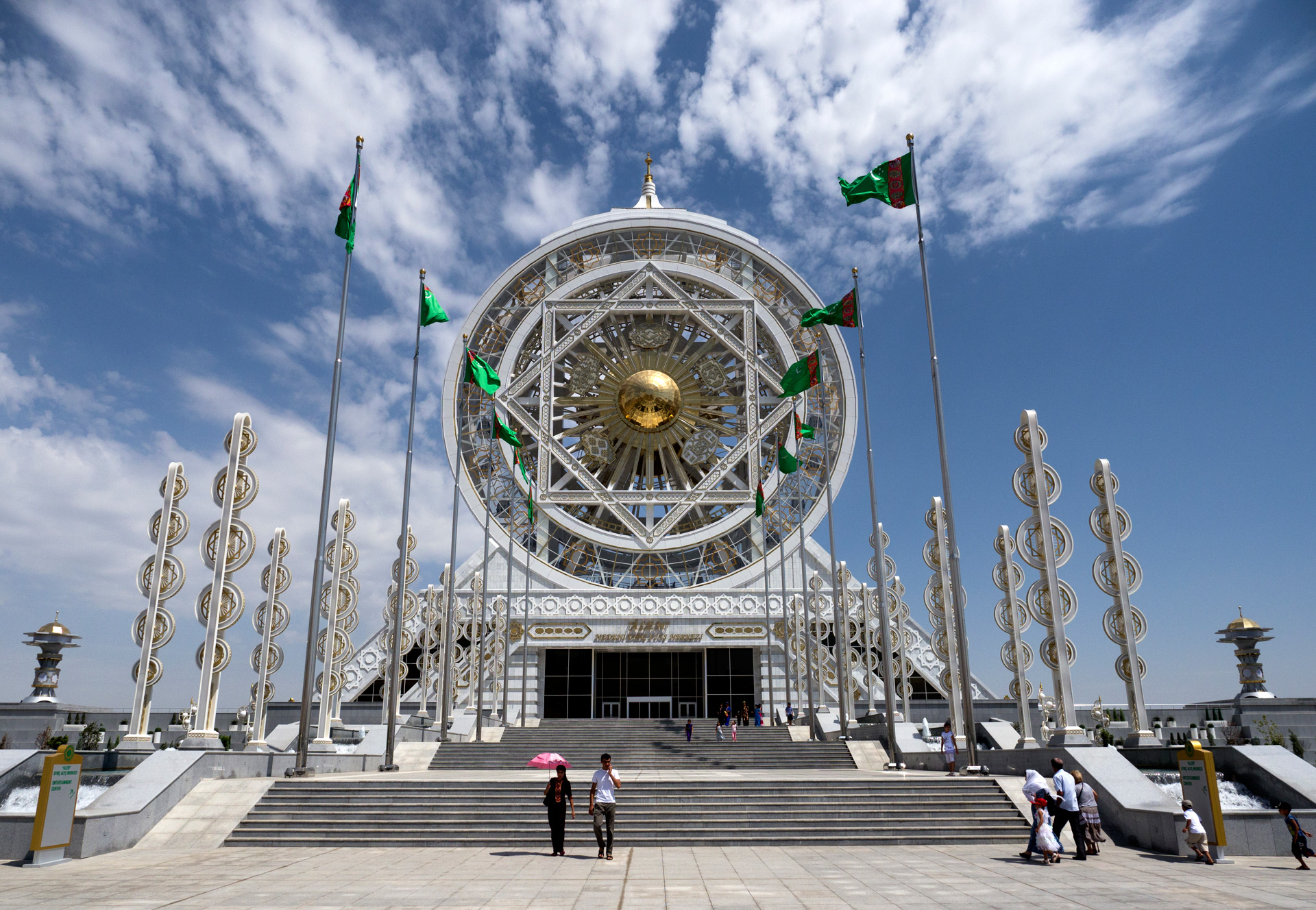
The Alem Entertainment Center in Ashgabat. In 2012, the wheel atop this complex was entered into the Guinness Book of World Records as the world's largest enclosed Ferris wheel.
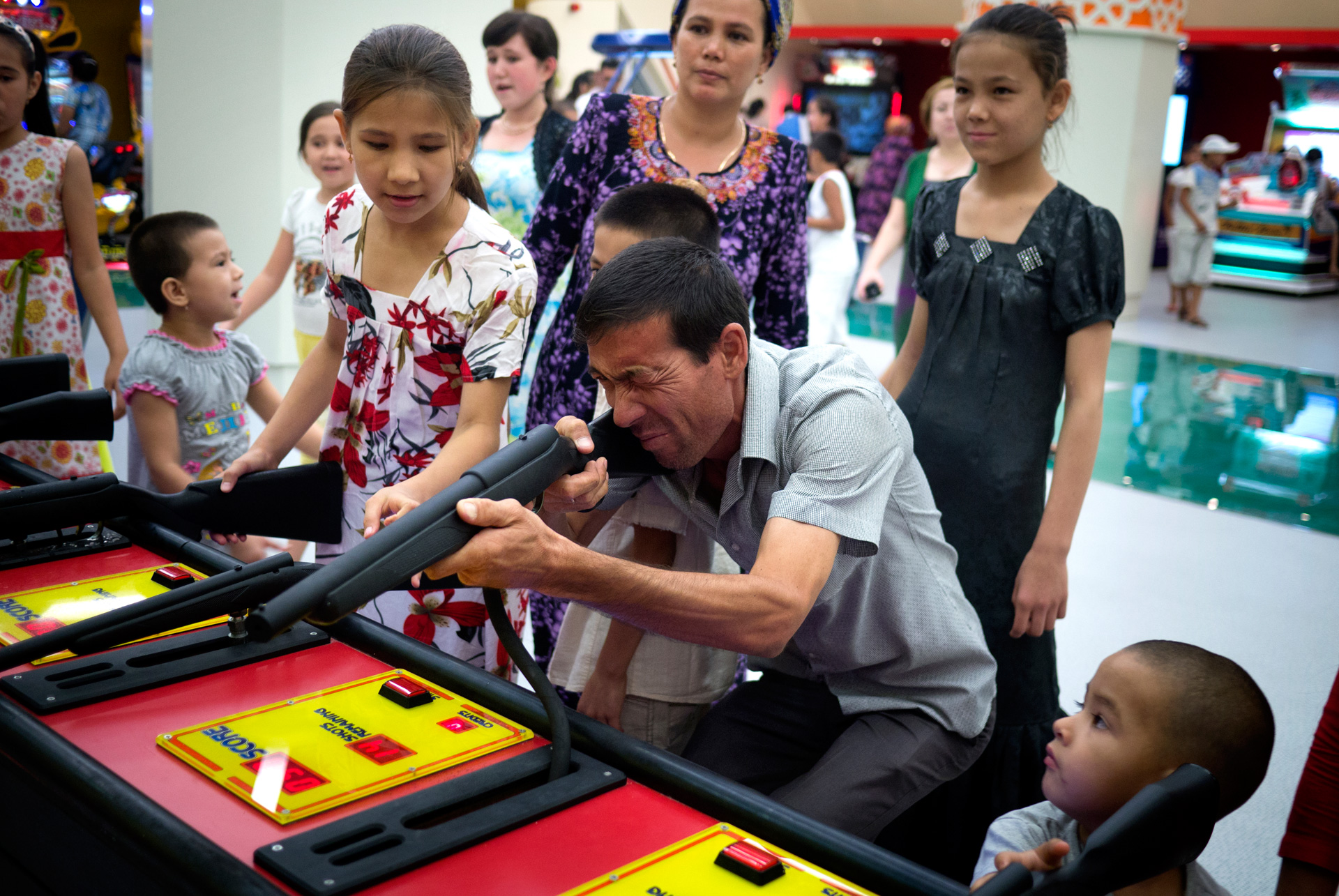
A man at the shooting range of the entertainment center.

Bumper cars in the Alem Entertainment Center.
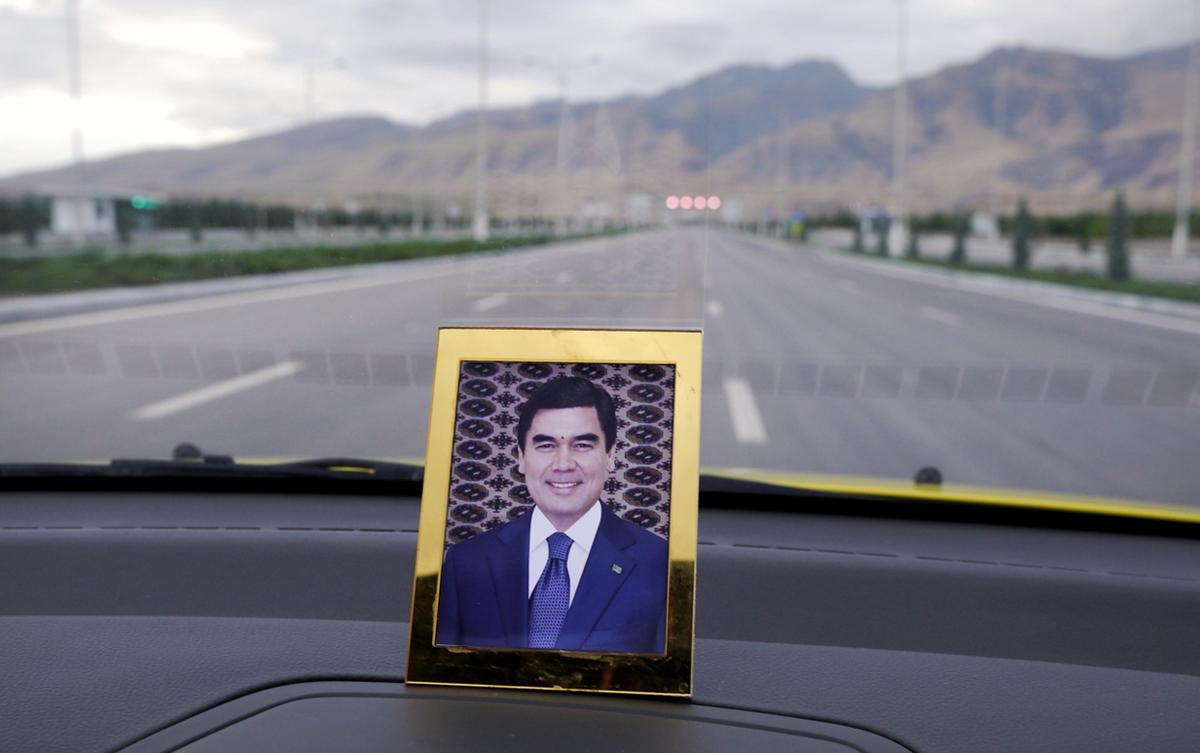
You can see the Turkmenistan President’s portrait even on a cab.
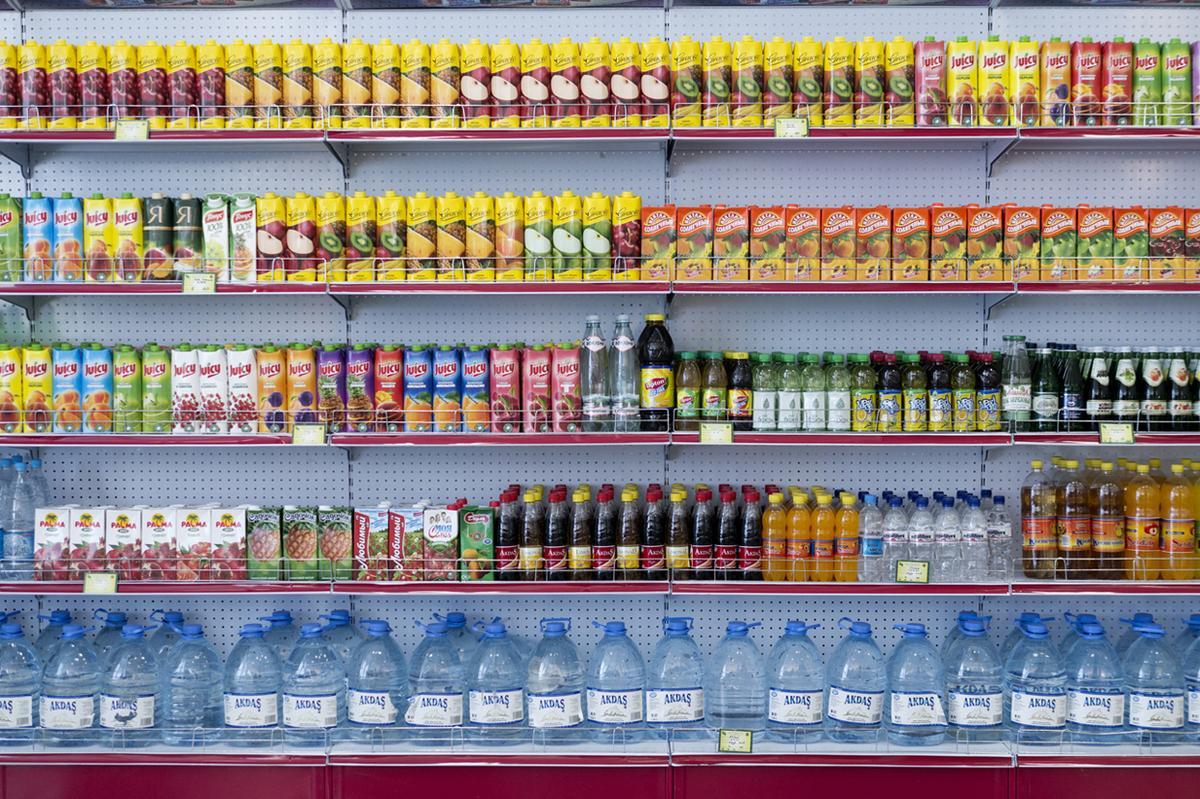
Supermarket in the capital’s downtown.
